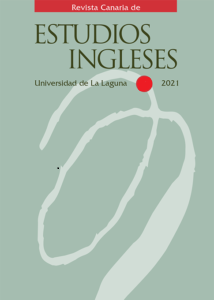Towards a Constructionist, Usage-Based Reappraisal of Interpersonal Manipulation: Evidence from Secondary Predication in English and Spanish
Abstract
This paper argues for a constructionist analysis à la Goldberg (Constructions, Work, “Nature”) of the most distinctive semantico-pragmatic hallmarks of secondary predication after verbs of causation, volition and preference in English and Spanish. Specifically, it is demonstrated that the commonalities and idiosyncratic particulars of these configurations can be felicitously captured taking into account: (i) the degree of felicity of the control exerted by the main clause subject (the Agonist) and the entity/person in the object slot (the Antagonist), broadly construed, as well as the (ii) the dynamic interaction of the semantico-pragmatic properties of the entity/person in the object slot with those of the object-related predicative phrase
(XPCOMP).



